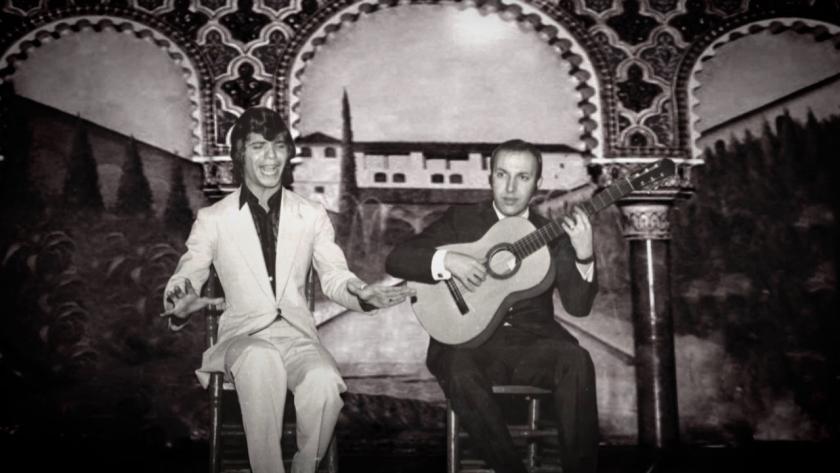The scenes at flamenco legend Camarón de la Isla’s chaotic, thronged funeral which open this lovingly-made documentary give some idea of the singer’s popularity and the shock at his death at the age of just 41 in 1992. He began singing professionally – to support the family after his blacksmith dad’s early demise – at just eight years old and was profoundly influenced by his mother, Juana Cruz Castro, a basket weaver who attracted admiring crowds to hear her sing in her Cadiz courtyard. So far, so gitano.
Camarón (meaning shrimp – he was considered pale and blonde among the gypsy community) was responsible, alongside his regular partners Paco de Lucia and Tomatito, for Nuevo Flamenco – the step between the strictly traditional stuff and pop acts like the Gipsy Kings. From a niche art form confined largely to ghettoes, Camerón took it mainstream and he worked like a dog to do so. The purists berated him, and his career was more rollercoaster than trajectory, but he always bounced back – one minute struggling with heroin addiction, the next being courted by the likes of Mick Jagger. Timing was crucial too; his was the age of the huge post-Franco cultural shift.
The veteran Spanish actor Juan Diego elevates this part-animated film with beautifully delivered commentary, explaining the role of the persecution of the gypsy race from its exodus from North East India through to Nazi ethnic cleansing, in this most emotional of art forms. These are "people who have persecution written in their blood" and Camerón is still considered to be one of the few that could convey this in his singing. However, there are still some who believe that Flamenco can only really be appreciated live. It’s certainly a style that eschews perfection and predictability – Camerón admits on screen that he needed to be inebriated to summon the duende necessary. And the 80-a-day smoking habit that eventually killed him enriched rather than destroyed his voice. His voice "evokes the desolation of his people".
Of course, flamenco is nothing if not divisive. It either sets your teeth on edge or fascinates with its complex, multi-cultural mix. This film won’t convert you but if the wailing moves your soul, it’s two hours well spent.













Add comment